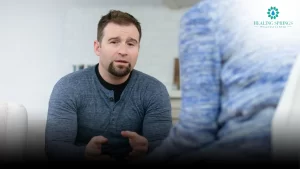
From Panic to Poise: How Therapy Eases Performance Anxiety
Performance anxiety can cause panic, racing thoughts, and fear of judgment. Learn how therapy helps you regain confidence and perform calmly.
Trauma is defined as a deeply distressing or disturbing experience that can also have a psychological impact on an individual. It is common and can have long lasting effects that impact a person’s everyday experiences, daily functionality, relationships, and how they connect with others and self. Living through a traumatic event can result in feelings of danger, betrayal, and potential harm especially in relationships. Trauma can distort the way we see ourselves and inhibit the depth of connection to ourselves and others.
Most times, survivors will feel vulnerable and be confused about what being safe looks and feels like in a relationship. This can cause one to struggle within and have difficulty with trust. Mistrust becomes a means to cope or protect themselves.
A trauma survivor may be personally affected with struggling with low self esteem and emotional instability (mood swings).Experiencing emotional trauma can impact communication style and openness to intimacy. Causing a person to feel closed off or disconnected. All of which, can stunt the growth of relationships and establish an unbalanced dynamic.
Trauma survivors have unclear boundaries or may not know how to establish them with regards to being and feeling safe, and this can lead to distrust and being defensive. Being and feeling safe as well as being able to trust, is imperative in any relationship. Navigating from a sense of unresolved emotional trauma, can result in the survivor never being satisfied in their relationships. It can be hard to engage in open and honest communication with others for fear of how you are perceived, fear of being deceived, or for fear of being harmed.
Emotional detachment is the result of trauma or abuse. In the event of childhood trauma, children require a lot of emotional connection from their parents and caregivers. If it is not forthcoming, the child may stop expecting it. When that happens, they begin to turn-off their emotional receptors. When trauma is left untreated, this can travel into adulthood and impact communication and vulnerability in relationships. They can also have difficulty knowing how to respond to or accepting another person’s emotions. As a result of having difficulty expressing self, one can turn to other ways to cope, such as drugs, alcohol, or aggressive behaviors, which is a way that they deal with that energy. Suppression of emotions doesn’t make the feelings go away but just pushes them down to come out in other ways.
Naturally, an individual can isolate themselves as a way to cope. A person who has experienced trauma feels misunderstood and can have an altered sense of perception if they are experiencing PTSD as a result of the traumatic experience. Sometimes, there’s anxiety or feeling burdensome to others, so staying to self seems like a much safer option than opening yourself up to possibly experience any potential hurt or pain. Withdrawing makes it genuinely harder to connect with others because the individual is living in fear of something negative happening to them and will often project those fears in anticipation of that.

Recovery from trauma is an individual process and can look different for everyone. One of the first steps to healing is acknowledging that there is help. Seeking help from a professional is one of the first steps you can take on the road to recovery. It will not only help to establish a deeper connection in relationships with others but also with yourself. It will allow you to identify your triggers and set up healthy boundaries, as well as being able to better emotionally navigate when feelings do arise. Regaining a sense of safety involves creating a secure and predictable environment where you are free from physical and emotional injury and have established a degree of emotional stability. A professional can successfully help you to become established in doing so. Other than seeking a professional, you can implement practices of self care to help you on your path to recovery, such as journaling, meditating, exercising, getting outside, eating as healthily as you can, and getting adequate rest.
We at Healing Springs Wellness Center, are ready to help you on your trauma recovery journey. Let us help you find emotional peace and safety. Schedule a free 15-minute phone consultation for counseling.

Performance anxiety can cause panic, racing thoughts, and fear of judgment. Learn how therapy helps you regain confidence and perform calmly.

Overthinking keeping you stuck? Learn therapist-approved strategies to stop mental spirals, reduce anxiety, and regain clarity in the new year.

Heart palpitations can be a frightening anxiety symptom. Learn why anxiety causes a racing heart and how to regain control in the moment.

Holiday stress can turn into anxiety, insomnia, or panic. Learn the signs, why it happens, and how therapy helps you regain calm and control.